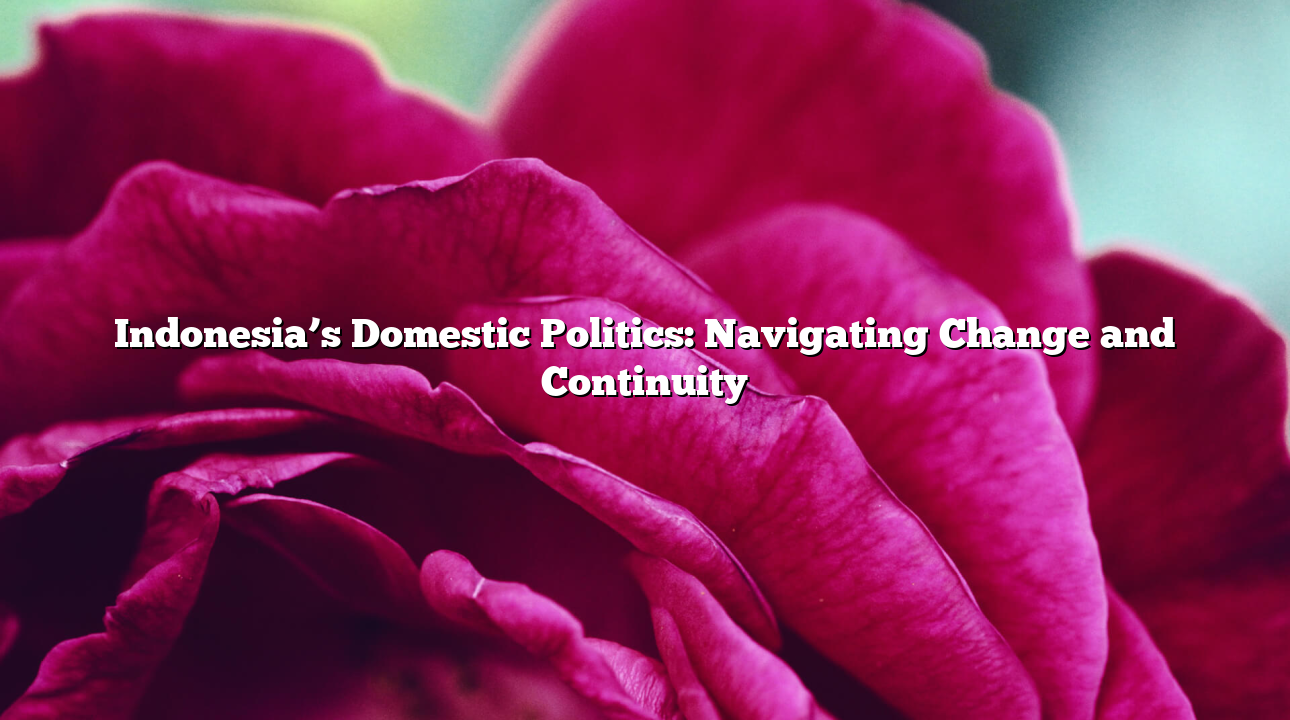Indonesia, Southeast Asia’s largest democracy, continues to demonstrate a dynamic and complex domestic political landscape. With over 270 million people spread across thousands of islands, the country’s political fabric Pattimura4d is woven with diversity, decentralization, and a growing demand for transparency and accountability.
At the heart of Indonesia’s political system is its presidential democracy. The president, elected directly by the people, holds substantial executive power. Since the fall of the authoritarian Suharto regime in 1998, Indonesia has undergone significant democratic reforms. These reforms have included free and fair elections, an independent judiciary, and a relatively open press. Yet, challenges remain, especially concerning political corruption, elite dominance, and regional disparities in governance quality.
One of the most pressing issues in Indonesia’s domestic politics today is the increasing concentration of power among political elites. While the country boasts a multi-party system, real political influence is often limited to a small number of powerful figures and families. This phenomenon, often referred to as “oligarchic politics,” tends to reduce genuine political competition and can hinder efforts to address inequality and improve public services.
In recent years, the government under President Joko Widodo (commonly known as Jokowi) has focused on infrastructure development, economic growth, and bureaucratic reform. Jokowi’s technocratic style and his commitment to practical governance have gained him widespread popularity. However, his administration has also faced criticism, particularly regarding freedom of speech and civil liberties. Laws perceived to limit expression—such as the Electronic Information and Transactions Law—have raised concerns among civil society groups about a potential regression in democratic freedoms.
Another central aspect of Indonesia’s domestic politics is the role of religion. Although Indonesia is officially a secular state with the motto “Bhinneka Tunggal Ika” (Unity in Diversity), religion often influences political narratives and voter behavior. Islamist political movements have gained traction in certain regions, sometimes challenging the pluralistic foundation of the state. This has led to debates about the balance between religious freedom, national unity, and secular governance.
The rise of identity politics, particularly during election seasons, has further complicated the political climate. Politicians and parties occasionally exploit ethnic and religious sentiments to mobilize support, which risks deepening societal divisions. Managing diversity while promoting inclusive policies remains a delicate task for any Indonesian leader.
Decentralization, implemented in the early 2000s, has been a double-edged sword. On one hand, it has empowered local governments, bringing public services closer to the people and encouraging innovation at the regional level. On the other hand, it has also created new opportunities for corruption and mismanagement, especially in resource-rich provinces where oversight mechanisms are weak.
Looking ahead, Indonesia faces several political crossroads. The upcoming general elections will be a key test of the country’s democratic resilience. Issues such as environmental protection, youth unemployment, digital transformation, and indigenous rights are expected to feature prominently in political campaigns. Furthermore, with a growing population of young voters, there is increasing pressure on political parties to modernize their platforms and address the aspirations of the next generation.
In conclusion, Indonesia’s domestic political scene is marked by both progress and persistent challenges. The country has made impressive strides since the Reformasi era, but it must continue to strengthen democratic institutions, uphold civil liberties, and ensure that governance truly serves the public interest. As Indonesia continues to rise on the global stage, the integrity and responsiveness of its domestic politics will be critical in shaping its future.
